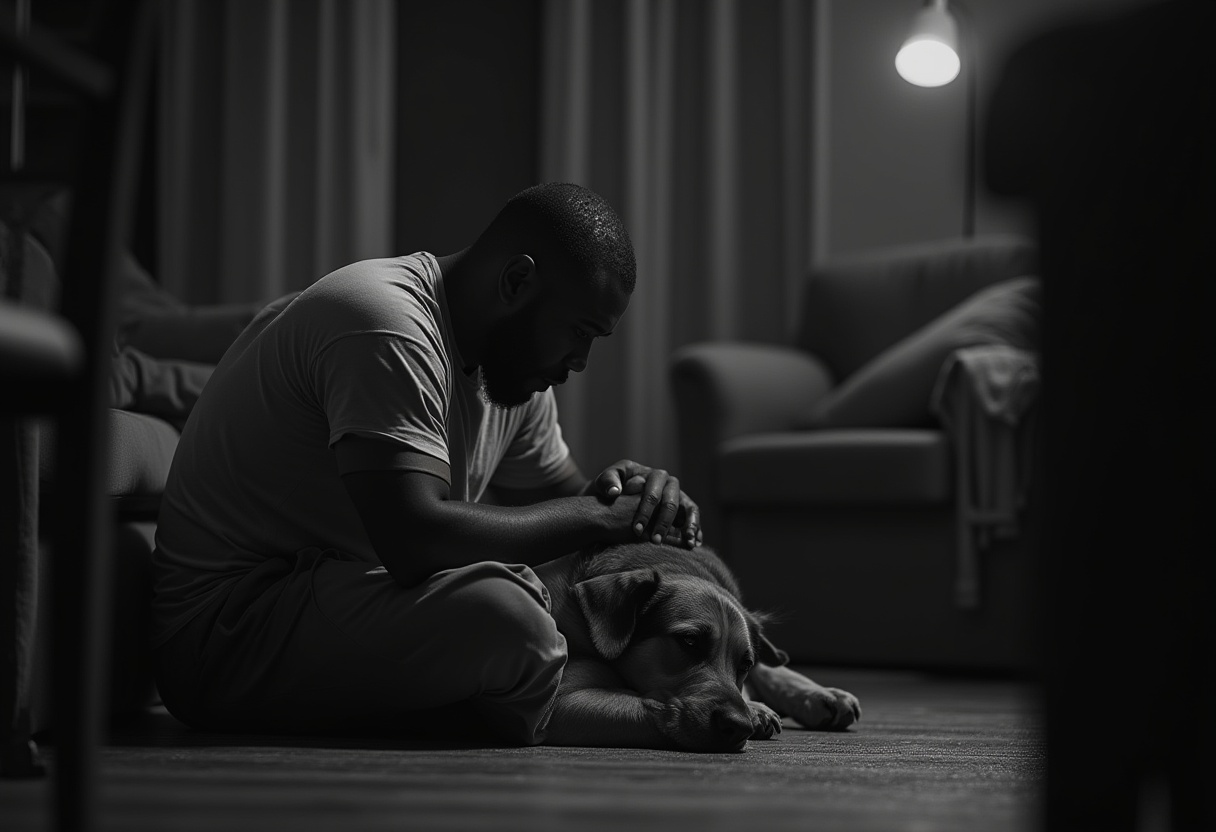How to Support Someone Choosing In-Home Euthanasia for Their Pet

How to Support Someone Choosing In-Home Euthanasia for Their Pet

When a beloved pet reaches the end of their life, the decision to say goodbye is one of the most difficult choices a pet owner can face. For many families in Reno, NV, in-home euthanasia offers a peaceful, dignified way to help their furry companion transition while surrounded by love and familiar surroundings.
If someone close to you is considering this option, your support can make an enormous difference during this heartbreaking time. Understanding how to offer meaningful help—without overstepping boundaries—requires sensitivity, compassion, and practical knowledge about the process.
This guide will help you navigate how to best support your friend or family member through this difficult decision, from the initial consideration through the grieving process that follows.
Understanding the Decision-Making Process
The choice to pursue in-home euthanasia rarely happens overnight. Pet owners typically wrestle with this decision for days, weeks, or even months as they watch their companion's quality of life decline. Common factors that lead to this choice include chronic pain that can't be managed, terminal illness, severe mobility issues, or a combination of age-related conditions that significantly impact daily life.
Your role during this decision-making period is to listen without judgment. Avoid offering unsolicited advice about alternative treatments or suggesting they "try one more thing." Instead, acknowledge how difficult this choice must be and reassure them that considering their pet's comfort and dignity shows tremendous love.
Many pet owners in Reno, NV find comfort in knowing that in-home euthanasia allows their pet to remain in familiar surroundings, surrounded by family, rather than experiencing the stress of a veterinary clinic during their final moments.
Practical Ways to Offer Support
Supporting someone through this process involves both emotional and practical assistance. Here are concrete ways you can help:
Before the Appointment
Offer to help with logistics that might feel overwhelming. This could include researching veterinary services that provide in-home euthanasia in Reno, NV, making phone calls to schedule appointments, or helping to arrange time off work. Sometimes the person making these arrangements feels too emotional to handle these tasks effectively.
Help create a peaceful environment for the final appointment. This might involve assisting with household preparations, ensuring other pets or children are cared for appropriately, or simply being present for emotional support if requested.
Consider offering to take care of practical matters like grocery shopping, meal preparation, or other daily tasks that might feel insurmountable during this emotional time.
During the Process
Respect their wishes about your presence. Some people want close friends or family nearby for support, while others prefer privacy during these intimate final moments. Ask directly what they need rather than assuming.
If you're invited to be present, follow their lead regarding participation. Some families want everyone to say goodbye, while others need space to process privately with just immediate family members.
Be prepared to help with other pets in the household, who may react to the loss of their companion. Having someone available to comfort other animals can be invaluable.
After the Appointment
The period immediately following in-home euthanasia can feel surreal and overwhelming. Continue offering practical support like meal delivery, pet care for other animals, or handling necessary arrangements if they've chosen cremation or burial services.
What Not to Say or Do
Well-meaning friends and family sometimes offer comfort in ways that can actually increase pain. Avoid phrases like "at least they're not suffering anymore" or "you can always get another pet." These comments, while intended to help, often minimize the profound loss being experienced.
Don't rush their grieving process or suggest timelines for "getting over" their pet's death. Grief over losing a beloved animal companion is real and valid, and everyone processes loss differently.
Avoid sharing stories about your own pet losses unless specifically asked. While you might think this shows empathy, it can inadvertently shift focus away from their current pain.
Understanding the Grieving Process
Pet grief is complex and deeply personal. Some people experience anticipatory grief—mourning that begins before the actual loss occurs. This is completely normal and doesn't make the final goodbye any less painful.
The grieving process after in-home euthanasia might include guilt, even when the decision was clearly the most compassionate choice. Your friend or family member might second-guess their timing or wonder if they could have done something differently. Reassure them that choosing to end suffering takes tremendous courage and love.
Physical symptoms of grief are also common and can include changes in appetite, sleep disturbances, or difficulty concentrating. Understanding that grief affects the whole person—not just emotions—can help you offer more comprehensive support.
Long-Term Support Strategies
Your support shouldn't end when the immediate crisis passes. In the weeks and months following their pet's death, continue checking in regularly. Send a text message, make a phone call, or simply let them know you're thinking of them during what would have been significant dates—like their pet's birthday or adoption anniversary.
Consider memorial gestures that honor their pet's memory. This might include making a donation to a local animal shelter in their pet's name, creating a photo album of favorite memories, or planting something beautiful in their garden as a living memorial.
Be patient with their healing timeline. Some people feel ready to consider adopting another pet relatively quickly, while others need months or years. Neither approach is right or wrong—it's simply personal preference and individual healing needs.
Finding Professional Resources
Sometimes professional support can complement the care you're providing. Many areas, including Reno, NV, have pet loss support groups or counselors who specialize in helping people navigate animal grief. Offering to help research these resources or even accompanying them to an initial meeting can demonstrate your ongoing commitment to their wellbeing.
Online communities and resources can also provide comfort, especially for people who feel others in their daily life don't understand the depth of their loss. Help them find reputable online support groups or memorial websites where they can connect with others who've had similar experiences.
Creating Lasting Comfort
Supporting someone through their pet's in-home euthanasia is about being present, practical, and patient. Your consistent presence and understanding can provide immeasurable comfort during one of their most difficult experiences.
Remember that this support is a marathon, not a sprint. The most meaningful help often comes in the quiet weeks after everyone else has moved on, when you continue to acknowledge their loss and check on their healing progress.
The decision to choose in-home euthanasia reflects deep love and compassion for a cherished companion. By supporting your friend or family member through this process, you're helping ensure their pet receives a peaceful, dignified goodbye surrounded by love.
If you're considering in-home euthanasia in Reno, NV, contact Rover Veterinary Care today for more information about how they can help provide compassionate end-of-life care in the comfort of your own home.
